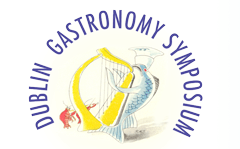Start Date
29-5-2024 9:45 AM
End Date
29-5-2024 10:00 AM
Description
Pigs arrived in Australia with British settlers onboard the First Fleet in 1788 and rapidly spread. As a product of British Imperialism, Australia has adopted many cultural consumption practices from its parent colony. Meat is on many tables, but not every table showcases the same animal, and these cultural differences illustrate that conditions of edibility are not equally defined. British values were attached to pigs, embedding them with transformative abilities to shape colonial ecosystems. Australian industries, jobs, and livelihoods are deeply connected to the past. The East India Company introduced Chinese pigs to Britain from 1685. The history of pigs is thus bound with the history of imperial capitalism. From 1757, when South China imposed a ban on international trade with East China, the only pigs exchanged with England came through the Guangzhou port. Political centripetal forces within global trade directly affected the pool of pig breeds that were brought into England. The unique geographic isolation of Australia will be examined to illustrate how interconnected cultural perceptions can manifest and have diverse consequences depending on where they land. Breeding practices and agricultural shows served as important mechanisms to disseminate cultural attitudes around specific species. Throughout the eighteenth-nineteenth centuries in Britain, wooden engravings and political cartoons were essential to publicise the changing conditions of livestock. This micro-historical account placed within the broader macro context will reinforce concerns of how smaller isolated populations are unevenly affected by the global food system. Digitised pan-Australian and global archives will provide rich primary evidence to create an historical chronology of cultural perceptions of pork. In so doing, it will show how environmental and public health issues are linked to the historical legacies of colonialism, empire building, industrialism, and capitalism.
Creative Commons License

This work is licensed under a Creative Commons Attribution-NonCommercial-Share Alike 4.0 International License.
DOI
https://doi.org/10.21427/9mdb-em24
Included in
Australian Studies Commons, Cultural History Commons, Economic History Commons, Food Studies Commons, Other Arts and Humanities Commons, Other Languages, Societies, and Cultures Commons, Other Sociology Commons, Social and Cultural Anthropology Commons, Social History Commons, Sociology of Culture Commons
Pork Problems - Embodied Britishisms Onboard the First Fleet to Australia
Pigs arrived in Australia with British settlers onboard the First Fleet in 1788 and rapidly spread. As a product of British Imperialism, Australia has adopted many cultural consumption practices from its parent colony. Meat is on many tables, but not every table showcases the same animal, and these cultural differences illustrate that conditions of edibility are not equally defined. British values were attached to pigs, embedding them with transformative abilities to shape colonial ecosystems. Australian industries, jobs, and livelihoods are deeply connected to the past. The East India Company introduced Chinese pigs to Britain from 1685. The history of pigs is thus bound with the history of imperial capitalism. From 1757, when South China imposed a ban on international trade with East China, the only pigs exchanged with England came through the Guangzhou port. Political centripetal forces within global trade directly affected the pool of pig breeds that were brought into England. The unique geographic isolation of Australia will be examined to illustrate how interconnected cultural perceptions can manifest and have diverse consequences depending on where they land. Breeding practices and agricultural shows served as important mechanisms to disseminate cultural attitudes around specific species. Throughout the eighteenth-nineteenth centuries in Britain, wooden engravings and political cartoons were essential to publicise the changing conditions of livestock. This micro-historical account placed within the broader macro context will reinforce concerns of how smaller isolated populations are unevenly affected by the global food system. Digitised pan-Australian and global archives will provide rich primary evidence to create an historical chronology of cultural perceptions of pork. In so doing, it will show how environmental and public health issues are linked to the historical legacies of colonialism, empire building, industrialism, and capitalism.
